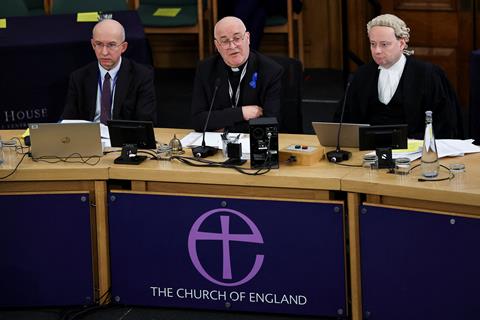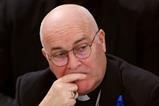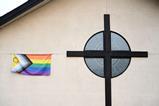The General Synod of the Church of England has voted to ditch an infamous 1991 document which expressed traditional views on human sexuality. What are the implications of the church’s decision? Rev Dr Christopher Landau gives his view

To appreciate the significance that the document ‘Issues in Human Sexuality’ has had in the recent life of the church, it’s worth noting that for decades, anyone exploring a calling to ordained ministry within the Church of England has had to assent to it.
Official documents state that they must have “read, understood and agreed to live within the guidelines”.
For many ordinands, and particularly those from sexual minorities, it has been a document that, however well-intentioned originally, has caused pain – both through its clunkily outdated language (using ‘homophile’ to describe gay people), and assumptions (its suggestion that bisexuality, of itself, is synonymous with sexual sin has attracted particular criticism).
The Synod’s decision to remove any reference to this ‘Issues’ document within the official vocations process does not, however, herald a theological free-for-all. There is a new document to which clergy must assent: the ’Guidelines for the Professional Conduct of the Clergy’. And these guidelines are, in fact, crystal clear about the church’s teaching on marriage being male-female, and on sex: “The clergy should set an example of integrity in relationships, and faithfulness in marriage. Marital infidelity is regarded as “unbecoming or inappropriate conduct”… Sexual intercourse, as an expression of faithful intimacy, properly belongs within marriage exclusively.”
If you have been following the twists and turns of the Church of England’s debates on sexuality, you might be forgiven for having thought that the decision to allow blessings of gay couples (within existing church services) represented a wholesale abandonment of traditional teaching.
Indeed it was two years ago that I wrote a piece with the headline ‘CofE leaders have forgotten Church teaching on sex’. It was a time of real theological tumult, when – it seemed – pretty much everything about theology, sex and marriage was up for discussion.
But fast-forward two years, and even the progressive campaigning group ‘Together for the Church of England’ is acknowledging that the disposal of ‘Issues in Human Sexuality’ does not open any theological floodgates. Its statement confirmed that “any changes to allow clergy same sex marriage will need to happen through due process at a later date.”
That reference to “due process” is an intriguing one. Arguably, in the last two years, the church has moved from a place of theological chaos on marriage to a (perhaps begrudging) admission that it does, in fact, hold to an established theology. Allowing same-sex marriages in church, or condoning clergy themselves entering same-sex marriages, would both represent clear departures from that existing teaching.
But “due process” in relation to what the church believes doesn’t yet seem to have heralded an equivalent new era of “due process” in relation to how the church assesses new liturgy and prayers. The church’s official liturgy adviser, Revd Dr Matthew Salisbury, gave a presentation about the Synod’s responsibilities for reviewing liturgical matters, and told members: “These procedures… ensure that what we authorise for use in the worship of the Church of England is tested… I hope this explanation has helped make clear how liturgical business moves through our Synod, the safeguards in place, and the vital role each of you plays in discerning, shaping, and finally approving the prayers and praises we offer to God in the name of the Church.”
Except that in relation to the most controversial liturgical development in recent years – the blessing of same sex couples – the Synod has been given no such opportunity. The very mechanisms which exist to safeguard the unity of the church, as well as its avoidance of error, have been ignored. Instead, the House of Bishops has “commended” the controversial prayers, enabling them to enter use without giving elected Synod members what Dr Salisbury called “a full and equal voice in shaping the church’s worship”.
So where next? In February 2023, the motion initiating blessings for same-sex couples invited the House of Bishops to monitor their use, and report back to Synod in five years’ time. February 2028 is, in the lifespan of the Church of England, merely moments away.
The perhaps unintended consequence of the disposal of ‘Issues in Human Sexuality’ has been to affirm the church’s existing teaching on marriage and sex with unexpected clarity. Who knows whether such clarity on the church’s theology will, in future, have a meaningful impact on the shaping of its public prayers.





































No comments yet